Dear Readers, Certain foods strengthen your body and can counteract inflammation. We have put together a list of anti-inflammatory foods including consumption recommendations.
So nothing stands in the way of your power nutrition against inflammation.
The Western world’s diet is dominated by foods that promote inflammation in the body. This also reflects the population’s clinical picture: many people suffer from chronic inflammatory diseases such as rheumatism.
Many foods have the opposite effect: they support the body and help prevent inflammation.
Below you will learn about the anti-inflammatory foods that you should integrate into your diet.
What is inflammation
Throughout our lives, we experience many different types of inflammation. Some more common things, like a mosquito bite.
Others are very rare, such as inflammation of a tendon. And some hopefully never, like pneumonia.
Inflammation is the body’s defense reaction to an external invader.
This invader could be a virus, bacteria, chemical, or a splinter in your skin.
The body tries to protect itself with the inflammatory reaction. The immune system is activated and works against the invader. A distinction is made between acute and chronic inflammation.
Chronic inflammation
Compared to acute inflammation, chronic inflammation is difficult to detect. They are also called “silent inflammation” and remain undetected for a long time.
This is because they lead to non-specific symptoms such as tiredness, fatigue, reduced ability to concentrate, headaches, and depressive moods.
Chronic inflammation is long-lasting and rarely heals on its own. The immune system is in constant use and therefore weakened.
As a result, people with chronic inflammation get sick more often. Silent inflammation itself does not count as an illness.
Rather, they are a syndrome. However, they can lead to chronic inflammatory diseases, such as rheumatism and arthritis.
Diet as a cause of chronic inflammation
The triggers of chronic inflammation are diverse. Stress, environmental influences, too little sleep, and lack of exercise are known.
However a diet low in vitamins and minerals and containing too many acid-forming foods can also lead to chronic inflammation in the body.
The foods that are most often on the table in the Western world are the best ingredients for a diet low in nutrients: white flour and refined sugar.
There are also many animal proteins and low-quality fats, which are highly acid-forming. Too many acidic foods and too few alkaline ones: This combination is the best recipe for an inflammatory chain reaction.
The good thing, however, is that through diet we can have not only a negative but also a positive effect on our well-being. Our diet is an effective weapon in the fight against chronic inflammation.
Acute inflammation
Acute inflammation subsides quickly. They are usually accompanied by redness, warmth, swelling, pain, and functional limitation of the affected area.
As soon as the cause of the inflammation penetrates the body, messenger substances ensure increased permeability of the blood vessel walls.
This makes it easier for defense cells to penetrate the tissue. It swells. The immune cells release so-called inflammatory mediators, which cause the vessels in the tissue to expand.
More blood reaches the affected area, which becomes increasingly red. With the blood, more immune cells reach the inflamed area. They support healing.
Tissue hormones stimulate nerves. Pain signals are sent to the brain. The body’s goal is to protect the painful part of the body.
Anti-inflammatory foods
Many anti-inflammatory foods strengthen your body from the inside out.
Below we explain what these are and which substances they contain have a positive influence on your body.
If you cannot tolerate one (or more) of the foods mentioned or perhaps even have an allergic reaction to them, the anti-inflammatory effect described here will of course not help you.
In this case, this particular food tends to promote inflammation.
The goal should not be to consume the individual foods mentioned in particularly large quantities.
Rather, it’s about eating a varied diet that includes a high proportion of unprocessed and fresh foods.
What makes foods anti-inflammatory
To be healthy and avoid chronic inflammation, you should eat a predominantly alkaline diet. An alkaline diet is rich in vitamins and minerals.
Some vitamins and minerals have antioxidant effects. They can therefore have a positive effect on the inflammatory process.
Among the vitamins, the most notable are vitamins A, C, D, and E. Among the minerals: are magnesium, zinc, and selenium.
In addition to vitamins and minerals, probiotics and fiber counteract inflammation. They produce a fatty acid called butyrate (butyric acid), which lowers the pH value in the intestine and thus counteracts oxidative stress.
Another weapon in the fight against inflammation is secondary plant substances such as flavonoids, carotenoids, and anthocyanins, which also have an antioxidant effect – as do essential oils, which are particularly found in spices.
Omega-3 fatty acids are also considered anti-inflammatory.
Anti-inflammatory for your diet
Many foods contain ingredients that can strengthen your immune system and optimally combat and prevent inflammation.
We present the most effective anti-inflammatory drugs for your diet.
Green leafy vegetables
Particularly noteworthy are green leafy vegetables such as spinach, chard, or kale. These vegetables are rich in chlorophyll, which is responsible for their dark, green color.
Particularly anti-inflammatory: vegetables and fruit
Fruits and vegetables are packed with vitamins, minerals, phytochemicals, and fiber. So they are true heroes of the anti-inflammatory diet.
Chlorophyll helps the liver remove inflammatory substances from the body.
Cruciferous vegetables (cabbage varieties)
Cruciferous vegetables include various types of cabbage. They not only contain a lot of micronutrients and secondary plant substances.
They also contain mustard oil, which is said to have anti-cancer effects.
Onion family
Everyone probably knows the intense smell of onions and garlic. This is due to the alliin it contains, a secondary plant substance. Alliin is released as soon as you cut the onion.
By the way, red onions contain a particularly high amount of anthocyanins, a secondary plant substance that is responsible for the red color.
Citrus fruits
Citrus fruits such as oranges, lemons, limes, tangerines, and grapefruits contain a particularly high amount of vitamin C. Vitamin C is considered a real immune booster, so you are well-armed in the fight against inflammation
Berry
Berries are also full of anthocyanins. You can recognize this by their deep, dark red color. Anthocyanins have been proven to have an antioxidant effect.
Foods containing carotene
Orange-yellow fruits and vegetables contain phytochemicals called carotenoids. Examples include carrots, pumpkins, sweet potatoes, mangoes, and apricots. Tomatoes also contain a form of carotene called lycopene.
Spices
Spices contain essential oils that are good for the body.
The yellow powder made from turmeric root has received a lot of attention recently.
But ginger, chili, pepper, and cinnamon are also rich in essential oils.
Even if they are only used in small quantities and have comparatively little effect, regular use and the combination of different spices can have a positive effect.
Rapeseed, linseed oil, and fish
Omega-3 are essential fatty acid. In addition to them, there are also omega-6 fatty acids.
They are also essential, but the average person already eats so many omega-6 fatty acids that you don’t have to worry about getting enough.
However, it is worth making sure you get enough omega-3 fatty acids, as a deficiency is more likely.
Rapeseed and linseed oil are good sources of Omega-3. You can also eat flax seeds directly, or use chia and hemp seeds.
Fatty sea fish, such as salmon, herring, or mackerel, are also a good source of omega-3. However, when it comes to fish, you should consider the pollutant levels. This can be relatively high, which in turn has an inflammatory effect.
Nuts and seeds
Nuts and seeds cannot be missing from the list of anti-inflammatory foods.
They contain valuable fiber as well as the antioxidant minerals magnesium, selenium, and zinc.
It also contains the antioxidant vitamin E. In addition, nuts, especially walnuts, are rich in omega-3 fatty acids.
Fermented foods
The intestines also play an important role when it comes to inflammation.
If the balance of desirable and less desirable bacteria is disturbed, the risk of inflammation increases.
Fermented foods enrich the gut with the bacteria we want right there. This in turn promotes a strong immune system.
Bacterial and fungal cultures that occur naturally in certain foods initiate a fermentation process under certain conditions.
But you may have also heard of kimchi (a spicy Asian pickled cabbage), miso paste (a fermented seasoning paste made from soybeans), kombucha (a fizzy soft drink), or tempeh (a type of tofu).
This is what your anti-inflammatory diet should look like
So that you can make your diet as anti-inflammatory as possible, we have put together everything you need to know:
- Eat lots of different vegetables.
- It’s best to cook the vegetables gently: this way you get the most vitamins and minerals.
- Enjoy berries every day and look for an organic seal (if possible).
- Use plenty of herbs and spices when cooking.
- Choose whole grains instead of white flour products.
- Eat a handful of nuts and seeds daily.
- Switch to rapeseed and linseed oil. It’s best to choose cold-pressed oils unless you want to use them for heating. Refined rapeseed or olive oil is suitable for this.
- Reduce sugary foods, such as sodas and sweets.
- Reduce acid-forming animal foods.
- Incorporate fermented foods into your diet.
- Drink enough water. If that’s too boring for you, you can squeeze a fresh lemon or orange into your water. Unsweetened warm or cold teas are also great.
With this list of foods, you are armed against inflammation.
In addition to a healthy diet, you can help your body prevent inflammation by avoiding stress, drinking little alcohol and smoking, and lacing up your sports shoes now and then.
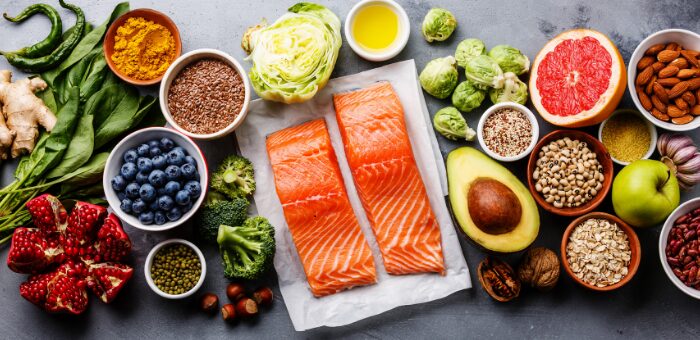
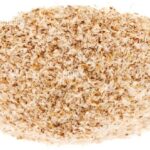
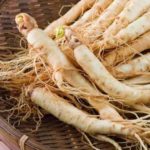
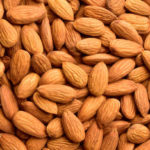
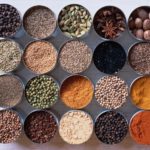
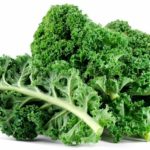
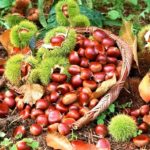
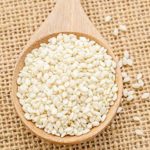
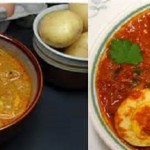



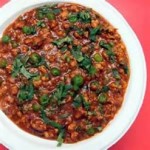
This is epic